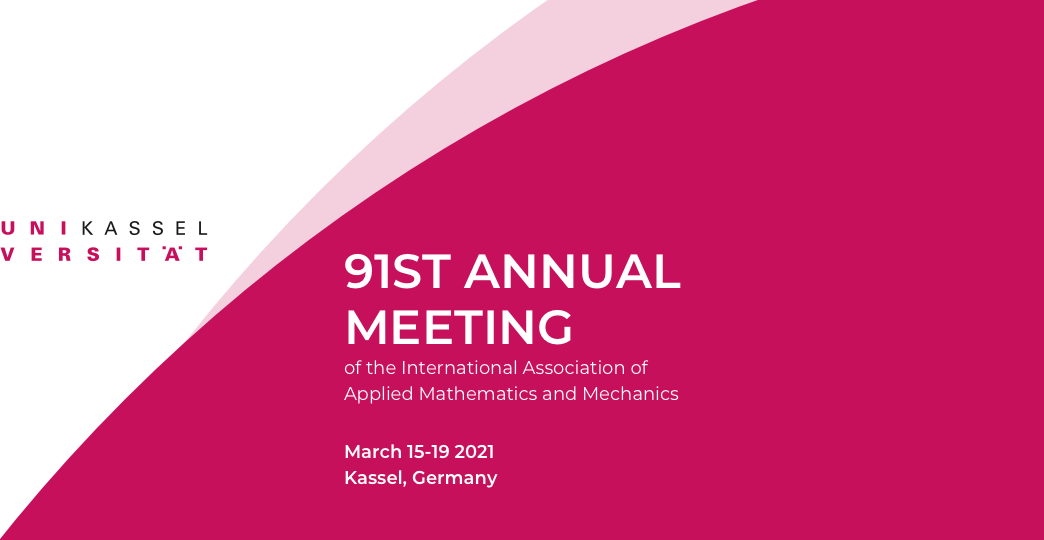The sessions introduce currently running Priority Programmes of the Deutsche Forschungsgemeinschaft which are related to topics of the GAMM.
PP01: Reliable Simulation Techniques in Solid Mechanics. Development of Non-Standard Discretization Methods, Mechanical and Mathematical Analysis
Organizers: Jörg Schröder (University of Duisburg-Essen), Thomas Wick (University of Hannover)
PP02 Compressed Sensing in Information Processing (CoSIP)
Starting with the pivotal works of Donoho and Candès-Romberg-Tao around 2005, the field of compressed sensing flourished at an unprecedented pace through close collaboration between mathematicians and engineers. The central problem in compressed sensing is the reconstruction of a signal, typically an element of a vector space represented in terms of a suitable basis, from only a limited number of linear observations. Despite the generally ill-posed nature of such linear inverse problems, the theory of compressed sensing shows that these types of problems still admit unique solutions, provided that the signals of interest exhibit certain exploitable low-complexity structures such as sparsity or low-rankness. Even more surprisingly, these solutions can be obtained by means of solving simple convex optimization programs. Considering the ubiquitous presence of structured signals in numerous applications such as wireless information and communication technology, imaging sciences, radar surveillance, and visual and audio signal processing, compressed sensing represents a powerful tool in the toolbox of mathematicians and engineers alike. At the heart of the current compressed sensing research lie efficient recovery algorithms, as well as necessary and sufficient conditions for stable and robust reconstruction, and the design of suitable measurement ensembles. The priority program “Compressed Sensing in Information Processing” (SPP 1798), started in April 2015, explores applications of compressed sensing in information processing. The program hosts innovative applications from wireless communication systems, channel and network coding, imaging sciences, radar and biological signal processing and pays significant attention to the underlying mathematical theory.
Organizers: Robert Kunsch (RWTH Aachen), Gitta Kutyniok (TU Berlin), Holger Rauhaut (RWTH Aachen)
Holger Rauhut (RWTH Aachen)
PP03 Turbulent Superstructures
Organizer: Jörg Schumacher (TU Ilmenau)
PP04 Polymorphic Uncertainty Modelling for the Numerical Design of Structures
Organizer: Michael Kaliske (TU Dresden)
PP05 Calm, Smooth and Smart – Novel Approaches for Influencing Vibrations by Means of Deliberately Introduced Dissipation
Organizer: Peter Eberhard (University of Stuttgart)
PP06 Non Smooth and Complementarity-Based Distributed Parameter Systems: Simulation and Hierarchical Optimization
Organizer: Michael Hintermüller (Weierstraß-Institut Berlin)
PP07 Cyclic Deterioration of High-Performance Concrete in an Experimental-Virtual Lab
Organizer: Ludger Lohaus (University of Hannover)
